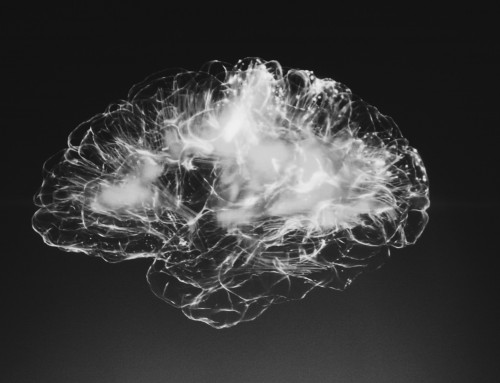I was depressed, but I didn’t have depression.
I had the symptoms of ‘depression’, though I didn’t see it as a disorder that I needed to put a label on, I saw it as an opportunity.
In part 1 I shared with you how realising that depression does in a sense serve a purpose, this was the catalyst to changing how I looked at what I was going through and now I want to share what it is that was ultimately the shift that cleared the fog that had been clouding my head for so long.
Let me be honest with you, you can choose to see depression as a breakdown in the way things are supposed to work in the brain — chemical imbalances that can be righted through a combination of medication and behavioural therapy, because that approach does work for people. Though I want to propose that depression is designed to make us stop to re-evaluate how we are living our lives.
We’re spending less time interacting with other people, eating an unhealthy diet, and getting less exercise, sunlight, and sleep, all of which can contribute to depression. Furthermore, advances in areas of science such as Epigenetics have highlighted our biological influences related to genetic differences, womb and birth trauma, and early nutrition can alter brain mechanisms and make people more, or less, susceptible to depression.
I believe that due to our fast-paced lives, we experience stress and trauma and recycle it, never giving ourselves time to process what has happened. Actually, According to Neuroscientist Joe Dispenza “The brain processes 400 Billion bits of information a second. BUT, we are ONLY aware of 2,000 of those”
I don’t know about you, but I grew in an era where you just got on with things, it was a chin up, and someone else has got it worse than you mentality. For me, I had to change how I was thinking and talking to myself.
What I realised, is that voice in my head is much more powerful than I could imagine, actually researchers from Durham University have shown how the same areas in the brain light up when we are talking to ourselves in our head and when we speak out loud. I wasn’t conscious of the dialogue that had been and would continue to run in the background whether I decided to be aware of it or not.
Now, what’s really interesting according to the National Science Foundation the average person has about 12,000 to 60,000 thoughts per day. Of those, 80% are negative and 95% are exactly the same repetitive thoughts as the day before.
Here’s the thing, your thoughts create your habits and behaviours, which then create your actions. Damn, for all these years I had been stumbling through life unaware that my thoughts were driving how I lived my life. Now that I had become aware of the ongoing conversation in my head, it made sense to me why I was feeling the way I did, there was some crazy shit running through my head!
Now let me be clear here. My life wasn’t’ bad, yes I grew up in a single parent family living in a council house and left school with no qualifications, but I had made something of my life. I had spent the second half of my twenties travelling around the world on cruises ships and working with millionaire clients and had created a career that I loved. My thought was. If I was feeling this way by not being conscious of what was going on in my head, what would happen if I was?
See, diet and exercise, which are two key areas to focus on when dealing with depression, were not really why I was feeling the way that I did. But let me share this with you. If it is an area that you feel is something you could improve on then please read my article, 3 Powerful Tools for Health and Wellbeing as I share what I do for diet and exercise to help keep my body and mind in balance.
The missing piece of the puzzle for me was low self-esteem. I didn’t like the person that I saw in the mirror every morning. It was easier for me to blame government, society or others for this. Though the reality was, it was my life and it was me who had to decide how I felt, not others.
I believe that low self-esteem and depression go hand in hand and is something that we all suffer from to varying points throughout our life. In a review of research at The University of Basel in Switzerland, they revealed that there is a strong relationship between self-esteem and depression
The researchers believed that those with low self-esteem are prone to replay and focus on negative thoughts far more than those who have high self-esteem, putting themselves at higher risk for low moods. Box ticked, yes that was me. Words are powerful, not just the ones you speak, but the ones that you are saying to yourself in your head.
Now here was the pill that was hard to swallow at first. To change this was not something that would happen overnight. This was a process that would take years and I believe is an ongoing practice.
Change is something that we humans do not inherently like, though it’s through change that we have evolved as a species and how we do as individuals. My journey to more self-esteem started with a book called The Celestine Prophecy by James Redfield. A story that follows an unnamed middle-aged man as he travels through the Peruvian jungles in pursuit of a mysterious manuscript, slowly learning each of the manuscript’s main points, or insights, from strangers he meets along the way. This is a unique novel about life and living life to its fullest.
This was part of a series of books that I would read and funny enough go back and read all over again after the breakdown of a long-term relationship many years later.
Every day we get to choose what we do, what we say and what we think. It’s when we decide to become the driver of our lives and not a passenger that we open the doors to what I call a life of purpose. There is no magic pill or scientific formula, it’s a personal journey of discovery.
Here’s my truth. If I had to go back and live that period again, I wouldn’t do anything different, because I believe the value I got from it was more than worth it. So let me leave you with you with this quote from The Celestine Prophecy.
“We must assume every event has significance and contains a message that pertains to our questions…this especially applies to what we used to call bad things…the challenge is to find the silver lining in every event, no matter how negative.”







Leave A Comment